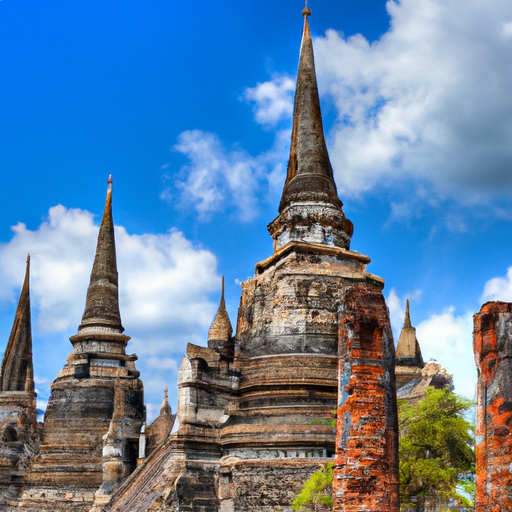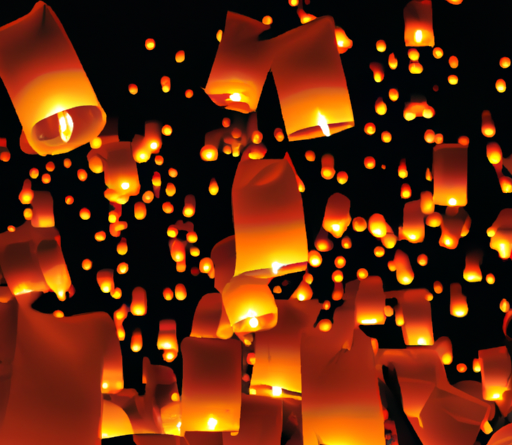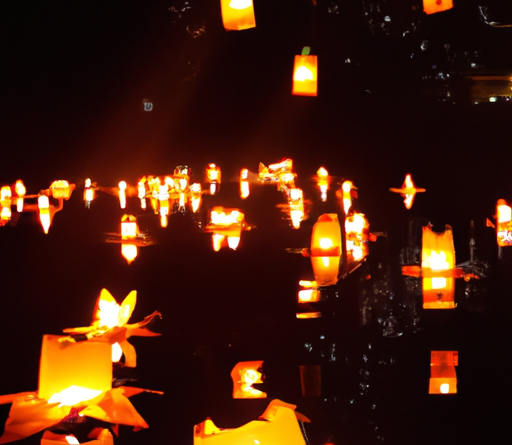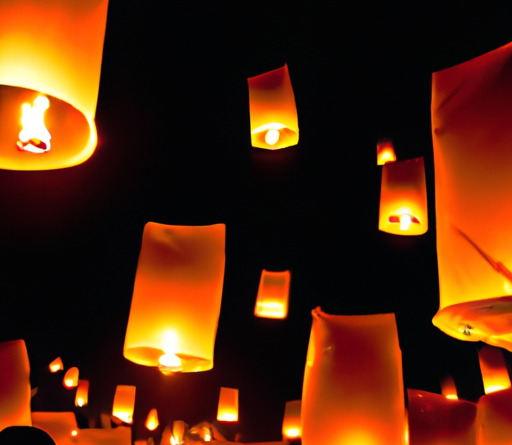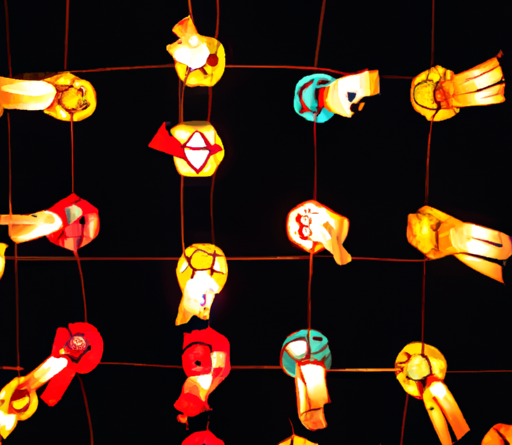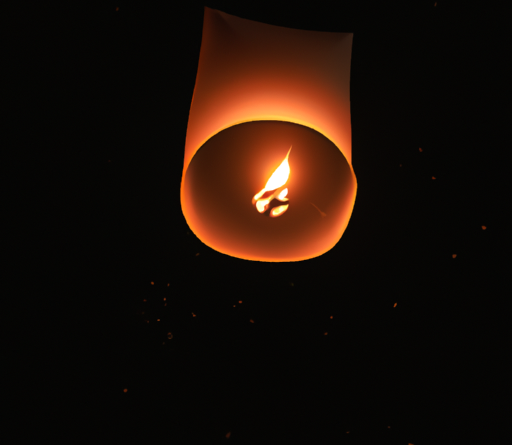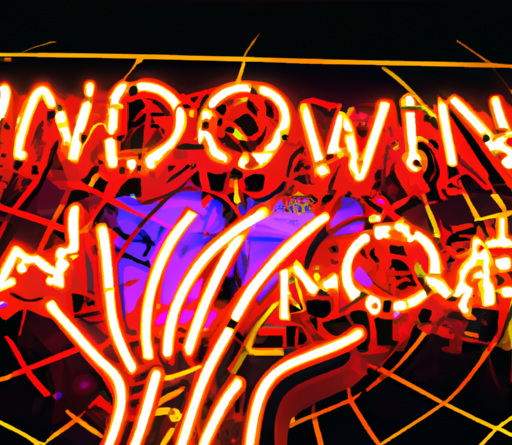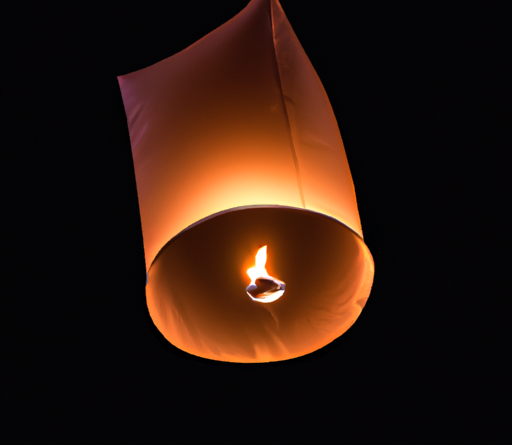
Join us on a fascinating journey through Thailand’s enchanting cultural festivals that come alive after the sun sets. Discover the vibrant traditions, fascinating rituals, and mesmerizing performances that make these nighttime celebrations truly unforgettable. From the dazzling lantern festivals to the mystical Ghost Festival, delve into the rich tapestry of Thai culture and immerse yourself in the captivating world of Thailand’s nighttime cultural festivals. Embark on this immersive exploration and prepare to be awed by the sights, sounds, and flavors of these captivating events.
Introduction to Thailand’s nighttime cultural festivals
Thailand is renowned for its vibrant and diverse cultural festivals, each offering a unique experience for locals and visitors alike. While Thailand boasts a wide array of festivals throughout the year, its nighttime cultural festivals hold a special place in the hearts of the Thai people. These festivals showcase the rich traditions, customs, and heritage of the country, providing a glimpse into its fascinating history and culture. From ancient rituals to lively parades, Thailand’s nighttime cultural festivals are a feast for the senses and a celebration of the nation’s identity.
Importance and significance of nighttime cultural festivals in Thailand
Nighttime cultural festivals hold great importance and significance in Thailand. These festivals serve multiple purposes, ranging from religious and spiritual devotion to fostering a sense of community and preserving cultural traditions. Through these festivals, Thais pay homage to their ancestors, seek blessings for the future, and express gratitude for a bountiful harvest or prosperous year. Additionally, nighttime cultural festivals are a means of passing down traditional customs and folklore from one generation to the next, ensuring that the rich heritage of Thailand continues to thrive.
Popular Nighttime Cultural Festivals in Thailand
Loy Krathong
Loy Krathong, also known as the Festival of Lights, is one of Thailand’s most enchanting cultural festivals. Taking place on the full moon night of the twelfth lunar month, usually in November, this festival celebrates the river goddess, Mae Kongka. During Loy Krathong, people release elaborately decorated banana leaf floats, called krathongs, onto rivers and waterways. These krathongs are adorned with candles, flowers, and incense, symbolizing the release of negativity and making wishes for the future.
Songkran
Songkran marks the Thai New Year and is celebrated with great enthusiasm and merriment throughout the country. Held from April 13th to 15th, this festival is famous for its water fights, adding an element of fun and refreshment to the festivities. Songkran is a time for family reunions, merit-making at temples, and paying respect to elders. People also clean their homes, participate in traditional rituals, and visit temples to offer food to Buddhist monks. The water fights symbolize the cleansing of sins and the washing away of bad luck, heralding the arrival of a prosperous new year.
Yi Peng
Yi Peng, also known as the Lantern Festival, is a mesmerizing festival held in the city of Chiang Mai. Celebrated on the full moon night of the twelfth lunar month, usually in November, Yi Peng is famous for its thousands of floating lanterns that light up the sky. Participants release lanterns into the air, symbolizing the release of worries and negative thoughts. The spectacle of floating lanterns illuminating the night sky creates a magical and serene atmosphere, attracting visitors from around the world.
Phi Ta Khon
Phi Ta Khon, or the Ghost Festival, is a vibrant and colorful festival celebrated in the Dan Sai district of Loei province. Held on dates determined by local mediums, usually between March and July, this festival is a combination of Buddhism and animism. During Phi Ta Khon, locals dress in elaborate ghost costumes, wear masks, and paint their faces to mimic spirits. The festival includes parades, traditional dances, and mock funerals, creating a unique and lively atmosphere that showcases the creativity and folklore of the region.
Boon Bang Fai
Boon Bang Fai, also known as the Rocket Festival, is a lively event held in the northeastern region of Thailand, known as Isan. Taking place in May or June, this festival is a traditional rainmaking ceremony. Participants build large bamboo rockets and launch them into the sky, accompanied by festive music and dance. The rockets are believed to carry messages to the gods, requesting abundant rainfall for the upcoming rice planting season. The festival culminates in rocket competitions, with prizes awarded to the teams with the highest-flying rockets.
Buffalo Racing Festival
The Buffalo Racing Festival, held annually in Chonburi province, is a thrilling and adrenaline-filled event that captivates locals and tourists alike. Originally a way for farmers to showcase the strength and agility of their buffalos, the festival has evolved into a highly competitive race. Participants ride bareback on the buffalos, racing through the fields to the cheers of the crowd. The festival also includes cultural performances, traditional games, and a beauty pageant, making it a celebration of both athletic prowess and local culture.
Monkey Buffet Festival
The Monkey Buffet Festival, held in the town of Lopburi, is a unique and entertaining spectacle that pays tribute to the monkeys residing in the area. Taking place in November, the festival involves a grand feast laid out exclusively for the local monkey population. Locals and visitors gather to witness monkeys indulging in a lavish spread of fruits, vegetables, and treats. The festival also includes traditional dance performances, parades, and cultural exhibitions, providing a delightful experience for attendees of all ages.
Bo Sang Umbrella Festival
The Bo Sang Umbrella Festival, held in the village of Bo Sang near Chiang Mai, showcases the traditional art of umbrella making. Taking place in January, the festival celebrates the intricately handmade umbrellas that have become a symbol of the region. Visitors can witness the entire umbrella-making process, from crafting the bamboo frames to painting intricate designs on the fabric. The festival also includes vibrant parades, cultural performances, and umbrella painting competitions, highlighting the creativity and craftsmanship of the local artisans.
Rocket Festival
The Rocket Festival, known as Bun Bang Fai, is a joyous and exuberant event celebrated in various parts of Thailand, particularly in the northeastern region. Taking place during May, this festival is held to welcome the rainy season and ensure bountiful harvests. The highlight of the festival is the launching of homemade rockets made from bamboo tubes filled with gunpowder. Participants compete to build the most impressive and highest-flying rockets, with the winners being hailed as heroes. The festival is accompanied by traditional music, dance performances, and lively parades, creating a vibrant and festive atmosphere.
Surin Elephant Round-Up
The Surin Elephant Round-Up is a grand spectacle that showcases the close bond between the Thai people and these majestic creatures. Held annually in November in the province of Surin, the festival features a series of captivating performances by elephants, ranging from football matches to traditional dances. Visitors have the opportunity to witness the strength and agility of elephants as they participate in various activities. The festival also includes an elephant parade, educational exhibits, and cultural performances, providing a deeper understanding of Thailand’s reverence for these gentle giants.
Traditions and Customs
Historical background and origins of Thai nighttime cultural festivals
The roots of Thailand’s nighttime cultural festivals can be traced back to ancient traditions and religious beliefs. Many of these festivals have their origins in agrarian society, where farmers relied on favorable weather conditions and bountiful harvests. The festivals served as a way to express gratitude to deities for a successful harvest, seek blessings for the upcoming planting season, and ensure good fortune for the community. Over time, these festivals evolved to incorporate elements of Buddhism and animism, reflecting the syncretic nature of Thai culture.
Meaning and symbolism behind festival activities
Each festival in Thailand carries its own unique meaning and symbolism. Loy Krathong, with its floating krathongs, symbolizes the release of negativity and making wishes for a bright future. Songkran’s water fights represent the cleansing of sins and the arrival of a prosperous new year. Yi Peng’s floating lanterns symbolize the release of worries and negative thoughts, while Phi Ta Khon’s ghost costumes and masks reflect the belief in otherworldly spirits. The rocket launches during Boon Bang Fai symbolize the desire for abundant rainfall. Understanding the symbolism adds depth and significance to the festival experience.
Traditional costumes and attire
Traditional costumes and attire play a significant role in Thailand’s nighttime cultural festivals, adding vibrancy and authenticity to the celebrations. Each festival has its own distinctive outfits that reflect the region’s history and culture. From the elegant traditional Thai dresses, known as “chut thai,” to the intricate ghost costumes worn during Phi Ta Khon, the costumes showcase the craftsmanship and attention to detail of Thai artisans. The vibrant colors, luxurious fabrics, and intricate patterns contribute to the festive atmosphere and highlight the beauty of Thai traditional clothing.
Festival preparations and rituals
The preparations for Thailand’s nighttime cultural festivals are elaborate and involve both individual households and communities. Families clean their homes and make merit at temples, seeking blessings for the festival. Special rituals and ceremonies are held to honor ancestors, call upon deities, and seek fortune for the upcoming year. Communities come together to decorate streets, temples, and public spaces, creating a festive ambiance. The making of festival-specific decorations, such as lanterns, krathongs, and rocket frames, is a communal activity that strengthens social bonds and preserves traditional craftsmanship.
Thailand’s Nighttime Festival Food
Street food delicacies
One of the highlights of Thailand’s nighttime cultural festivals is the abundance of delectable street food. Food stalls line the festival grounds, offering a wide array of mouthwatering delicacies. From spicy papaya salad to savory grilled skewers and aromatic pad Thai, the street food scene caters to every palate. Festival-goers can savor the flavors of traditional Thai dishes, cooked to perfection by skilled street vendors. These culinary delights are often enjoyed while strolling through the festival, creating a dynamic and immersive dining experience.
Traditional desserts and snacks
No festival in Thailand is complete without an array of traditional desserts and snacks. Sticky rice with mango, coconut pancakes, and crispy banana fritters are just a few of the delectable treats on offer. Festivals provide an opportunity to indulge in these sweet and savory delights, each bite infused with cultural significance and traditional flavors. Thai desserts often incorporate the richness of coconut milk, the sweetness of palm sugar, and the fragrant aroma of pandan leaves, resulting in unique and tantalizing taste experiences.
Local beverages and drinks
In addition to the delicious food, Thailand’s nighttime cultural festivals also offer a variety of local beverages and drinks. From refreshing fruit shakes and herbal teas to the bold and aromatic Thai iced coffee, festival-goers can quench their thirst with a wide assortment of flavorful drinks. Local favorites such as Singha beer, Chang beer, and Mekhong whiskey are also popular choices for those looking to celebrate with a bit of liquid courage. These beverages complement the festive atmosphere, providing a refreshing respite during the festivities.
Entertainment and Performances
Cultural dances and music
From graceful traditional dances to lively folk performances, Thailand’s nighttime cultural festivals are a celebration of the country’s rich artistic heritage. Festival-goers have the opportunity to witness captivating dance routines, featuring intricate hand movements, elaborate costumes, and rhythmic footwork. Traditional Thai music, characterized by the enchanting sounds of xylophones, gongs, and flutes, serves as the backdrop for these mesmerizing performances. The combination of dance and music creates an immersive sensory experience, transporting attendees to a bygone era of elegance and grace.
Traditional Thai folk performances
In addition to classic cultural dances, Thailand’s nighttime cultural festivals also showcase traditional folk performances that captivate audiences with their energy and exuberance. From energetic drum performances to dazzling fire shows, these folk performances highlight the unique talents and skills of the performers. Sword dances, puppet shows, and comedic acts add a touch of humor and entertainment to the festivals. The vibrant costumes, dynamic movements, and lively music contribute to the festive atmosphere, leaving spectators in awe of Thailand’s folk traditions.
Fireworks and light displays
Thailand’s nighttime cultural festivals are renowned for their spectacular fireworks displays and mesmerizing light shows. As the sun sets, the sky comes alive with bursts of color, creating a breathtaking visual symphony. Fireworks symbolize joy and celebration, adding a sense of magic and wonder to the festivals. Light displays, ranging from lanterns and candles to LED installations, provide an enchanting ambiance that illuminates the festival grounds. These displays serve as a visual representation of the festivities, casting a festive glow over the entire event.
Elephant shows and parades
Thailand’s reverence for elephants is showcased in many nighttime cultural festivals through elephant shows and parades. These gentle giants play a central role in the festivities, mesmerizing spectators with their grace and intelligence. Elephants adorned in traditional regalia participate in processions, creating a majestic sight that evokes a sense of awe and wonder. The displays often include elephant marches, dance performances, and even football matches, highlighting the bond between humans and these magnificent creatures and paying homage to the country’s rich history.
Traditional games and competitions
Festivals in Thailand would be incomplete without traditional games and competitions that engage both participants and spectators. These games showcase traditional skills, physical prowess, and teamwork. From tug-of-war contests to sack races, participants of all ages join in friendly competitions, fostering a spirit of camaraderie and joy. Other traditional games include Thai boxing demonstrations, martial arts displays, and traditional kite flying. The competitive spirit and infectious energy of these games add an element of excitement and adventure to the festivities.
Festival Locations and Dates
Bangkok
As the capital city of Thailand, Bangkok hosts numerous nighttime cultural festivals throughout the year. From Loy Krathong celebrations along the Chao Phraya River to elaborate Songkran water fights on the streets, Bangkok offers a diverse range of festival experiences. Visitors can also explore the city’s temples, such as Wat Arun and Wat Phra Kaew, which serve as focal points for cultural performances and rituals during festivals.
Chiang Mai
Chiang Mai, known for its rich cultural heritage, is a hub for nighttime cultural festivals. The city comes alive during Yi Peng, as the sky is filled with floating lanterns, creating a mesmerizing spectacle. The Bo Sang Umbrella Festival is another highlight, with its vibrant parades and showcases of traditional umbrella making. Chiang Mai’s festive atmosphere and picturesque surroundings make it a must-visit destination for those seeking an authentic Thai festival experience.
Ayutthaya
The ancient city of Ayutthaya, a UNESCO World Heritage site, offers a glimpse into Thailand’s rich history and heritage. During festivals, Ayutthaya’s historical sites serve as stunning backdrops for cultural performances and activities. The Loy Krathong celebrations along the banks of the Chao Phraya River provide a unique opportunity to experience this magical festival in a historical setting, adding an extra layer of significance to the festivities.
Sukhothai
Sukhothai, the birthplace of the Thai nation, holds great historical and cultural significance. The city’s annual Festival of Lights is a celebration of its illustrious past and showcases the architectural splendor of the Sukhothai Historical Park. The park is transformed into a mesmerizing display of lanterns and light installations, creating a captivating ambiance that transports visitors back in time.
Nakhon Ratchasima
Nakhon Ratchasima, commonly known as Korat, is an important cultural and historical center in northeastern Thailand. The city hosts the Boon Bang Fai Rocket Festival, attracting teams from across the region to showcase their rocket-building skills. This fiery festival is a vibrant and exhilarating event that captures the spirit of the local community and offers a unique insight into the region’s folk traditions.
Lopburi
Lopburi, often referred to as the “Monkey City,” is famous for its mischievous population of monkeys and the Monkey Buffet Festival. Held annually in November, this festival pays homage to the monkeys by providing them with a grand feast. Lopburi’s iconic Khmer temples, such as Prang Sam Yot and Wat Phra Sri Rattana Mahathat, serve as stunning backdrops for the festivities, combining cultural heritage with unusual animal interactions.
Roi Et
The city of Roi Et, located in Thailand’s northeastern region, is home to the Roi Et City Pillar Festival. This vibrant festival showcases the region’s unique traditions and customs, including traditional dances, parades, and religious ceremonies. The event is held in February, attracting visitors from far and wide who are eager to experience the cultural richness of the area.
Surin
Surin, renowned for its elephant population and long-standing relationship with these majestic creatures, hosts the Surin Elephant Round-Up. As one of Thailand’s most iconic festivals, this event offers a rare opportunity to witness awe-inspiring elephant performances and displays. Surin’s deep reverence for elephants is showcased through parades, traditional shows, and educational exhibits, making it a truly unforgettable experience.
Phuket
Phuket, a popular tourist destination known for its stunning beaches, also boasts a vibrant festival scene. The annual Phuket Vegetarian Festival is a unique event that showcases the island’s Chinese heritage and traditions. Participants observe strict vegetarian diets and engage in processions, rituals, and ceremonies believed to grant purification and good luck. Phuket’s colorful streets and ornate Chinese temples provide a picturesque backdrop for this cultural extravaganza.
Pattaya
Pattaya, a vibrant coastal city in Thailand, is a hub of entertainment and festivity. The city hosts a range of nighttime cultural festivals throughout the year, attracting visitors from all over the world. From Songkran water fights along the famous Beach Road to Loy Krathong celebrations on Jomtien Beach, Pattaya offers a lively and dynamic festival experience. The city’s energetic nightlife and vibrant atmosphere ensure that festival-goers are immersed in the excitement and joy of the festivities.
Cultural Festival Etiquette
Respecting local customs and traditions
When participating in Thailand’s nighttime cultural festivals, it is crucial to respect the local customs and traditions. Visitors should familiarize themselves with the festival’s significance and adhere to the guidelines set by organizers. It is important to show reverence in temples, remove shoes when entering sacred spaces, and follow any dress code requirements. Respecting the cultural norms and practices is a way of showing appreciation for Thai culture and ensuring a harmonious festival experience.
Appropriate behavior during festival activities
Festival-goers should engage in appropriate behavior during festival activities to ensure the safety and enjoyment of all attendees. It is important to follow instructions given by festival organizers and be mindful of personal space in crowded areas. Participants should act responsibly during water fights, respecting the boundaries and comfort levels of others. Littering should be avoided, and festival-goers should dispose of trash properly to maintain the cleanliness of the festival grounds.
Dress code and modesty
Thailand is a country with conservative cultural norms and values, and dressing respectfully during nighttime cultural festivals is essential. Revealing clothing and swimwear should be avoided, especially in sacred areas or during religious ceremonies. It is advisable to wear clothing that covers the shoulders and knees, respecting the local sensibilities. Adhering to modesty guidelines ensures that festival-goers are culturally sensitive and demonstrates a genuine appreciation for Thai traditions.
Photography and video guidelines
While capturing memories of Thailand’s nighttime cultural festivals through photography or video is encouraged, it is essential to be mindful of appropriate guidelines. Visitors should seek permission before taking pictures of individuals, especially during religious rituals or performances. Flash photography should be avoided in temples or areas where it may disrupt the serenity of the surroundings. Respecting the privacy and cultural sensitivities of others ensures that festival-goers can create memorable experiences without infringing upon the rights of locals or fellow visitors.
Thailand’s Nighttime Cultural Festivals in the Digital Age
Social media and festival promotion
In the digital age, social media plays a vital role in promoting Thailand’s nighttime cultural festivals to a global audience. Festival organizers and participants take advantage of social media platforms to create buzz, share event details, and showcase the beauty of the festivities. Instagram, Facebook, and YouTube are popular channels through which festival highlights are shared, enticing travelers from around the world to experience the unique cultural offerings of Thailand. The widespread reach of social media allows festivals to gain international recognition and boost tourism.
Preserving traditions amidst modernization
While modernization and globalization have brought changes to Thai society, the nighttime cultural festivals remain a steadfast pillar of tradition. Festival organizers recognize the importance of preserving cultural heritage and strive to maintain the integrity of the festivals as they adapt to new technology and trends. Efforts are made to strike a balance between embracing innovation, such as incorporating modern music and dance styles, while staying true to the roots of the festivals. This delicate balance ensures that Thailand’s nighttime cultural festivals continue to serve as a testament to the nation’s vibrant traditions.
Impact of technology on festival experiences
Technology has had a profound impact on the experiences of festival-goers in Thailand. Mobile applications and online platforms provide easy access to festival schedules, maps, and information, enabling visitors to plan their itineraries and make the most of their festival experience. Live streaming and virtual reality technology have allowed people from around the world to participate in and witness Thai festivals, bridging geographical distances and fostering intercultural exchanges. Technology has transformed the way people engage with and explore festivals, adding an exciting digital dimension to the festivities.
Economic and Touristic Impact
Contribution to the local economy
Thailand’s nighttime cultural festivals have a significant impact on the local economy, generating revenue and creating job opportunities. From street vendors and food stalls to souvenir shops and accommodations, festivals provide a boost to the hospitality and tourism industries. Festivals also stimulate economic activity in sectors such as transportation, entertainment, and handicrafts. The influx of visitors, both domestic and international, contributes to the local economy and supports the livelihoods of those involved in organizing and operating the festivals.
Boost in tourism
Thailand’s nighttime cultural festivals attract tourists from all over the world, boosting the country’s tourism industry. The festivals offer a unique and immersive cultural experience that captivates visitors, encouraging them to explore different regions of Thailand. Festivals serve as a gateway for travelers to discover the country’s cultural heritage, historical sites, and traditional customs. The influx of tourists during festivals promotes local businesses, encourages infrastructure development, and enriches the overall tourism offerings of the country.
Job creation and revenue generation
Nighttime cultural festivals in Thailand serve as sources of employment and income for local communities. From event organizers and performers to vendors and artisans, festivals create job opportunities and income streams. The production and sale of festival-specific items, such as handicrafts, costumes, and decorations, contribute to the local economy. Additionally, the establishment of temporary accommodations, transportation services, and tour operators during festival periods generates revenue and supports the livelihoods of individuals and families in the host communities.
Conclusion
Thailand’s nighttime cultural festivals offer a comprehensive insight into the rich tapestry of the nation’s traditions, customs, and cultural heritage. From the enchanting floating lanterns of Yi Peng to the exhilarating rocket launches of Boon Bang Fai, each festival presents a unique and captivating experience. These festivals serve as a testament to Thailand’s vibrant identity and provide an immersive cultural journey for both locals and visitors. Through the preservation of ancient rituals, the celebration of local customs, and the adaptation to modern times, Thailand’s nighttime cultural festivals continue to thrive as beacons of tradition and sources of joy. By participating in these festivals, one can truly appreciate the beauty and diversity of Thai heritage, forging lasting memories and fostering a deep appreciation for this fascinating country.
